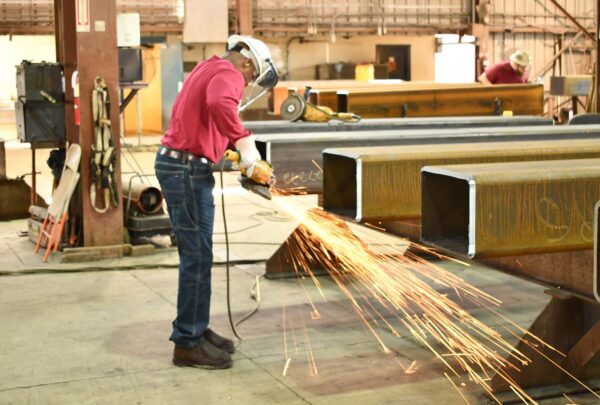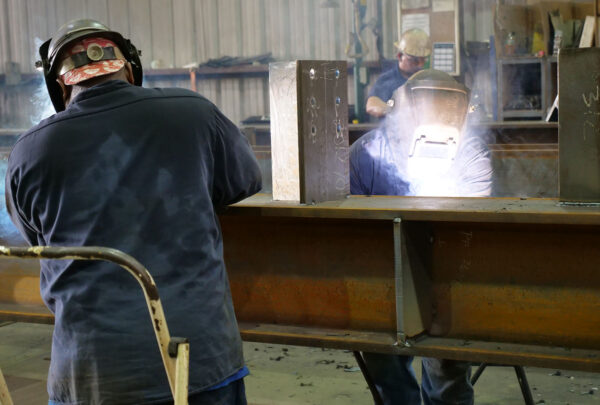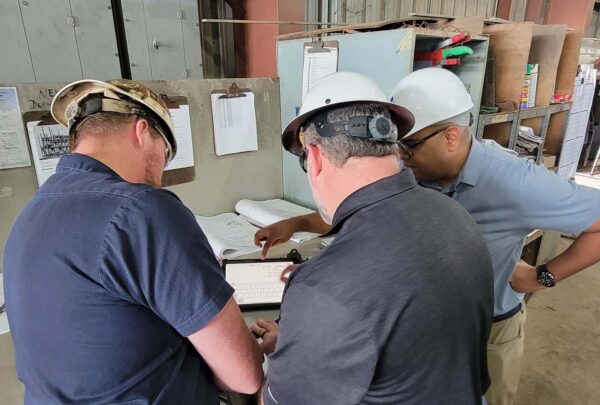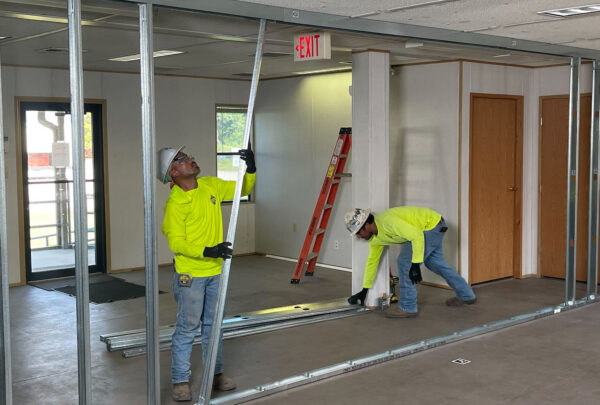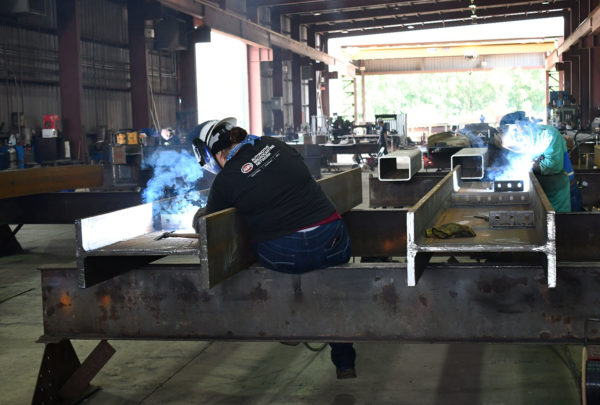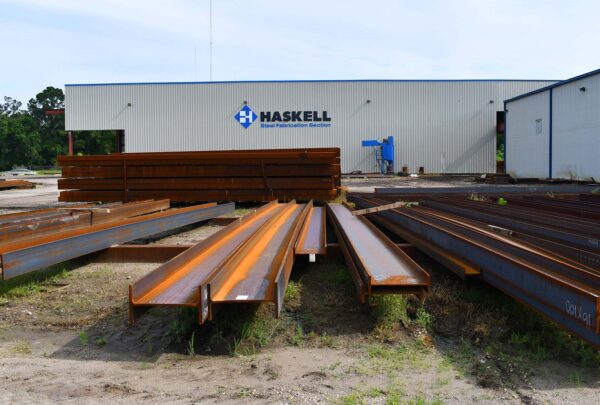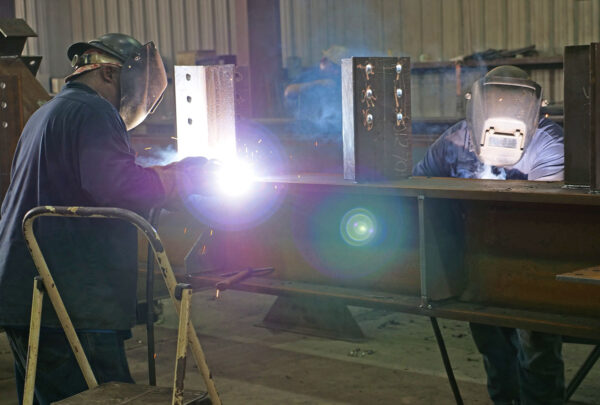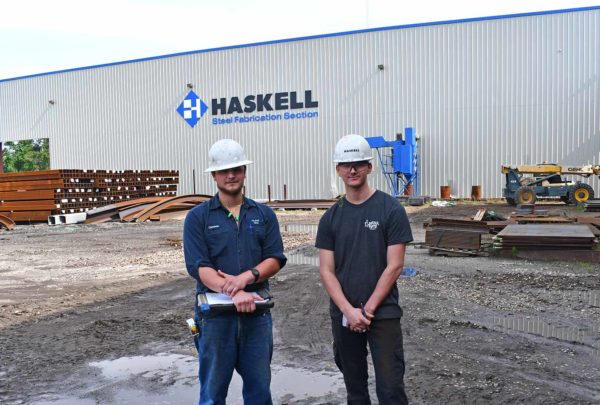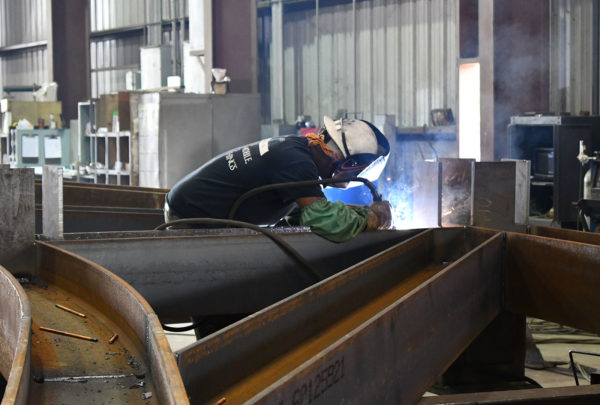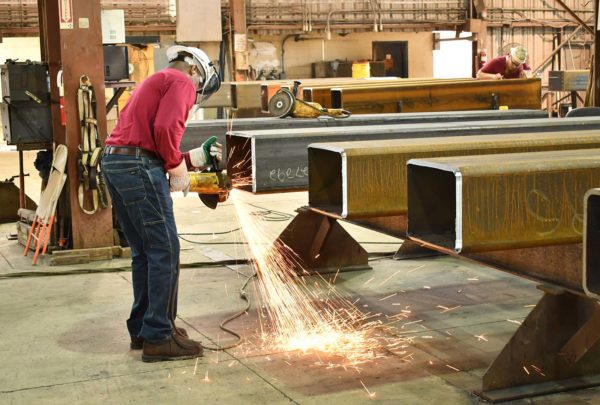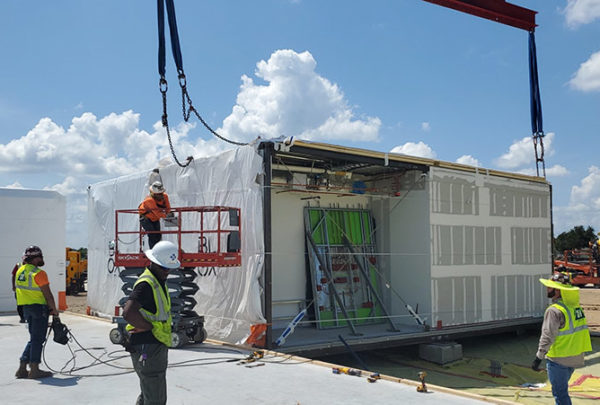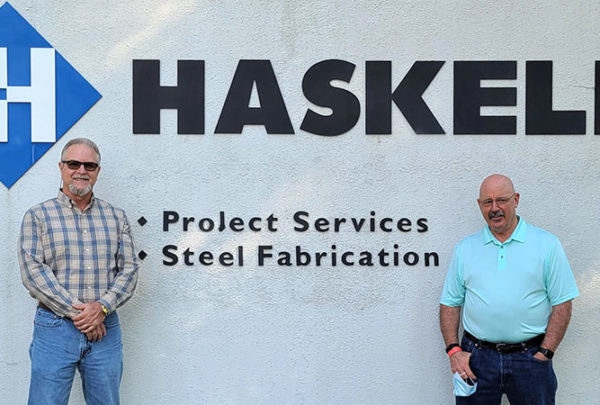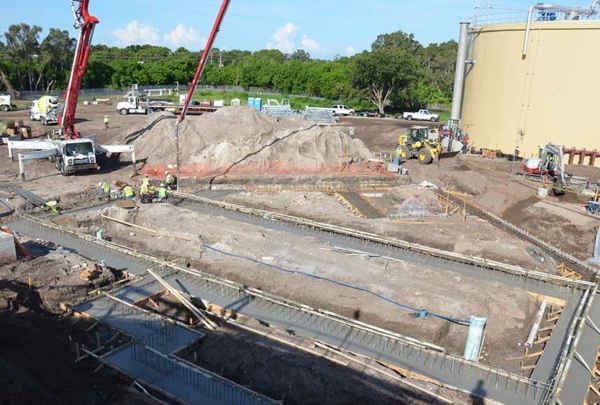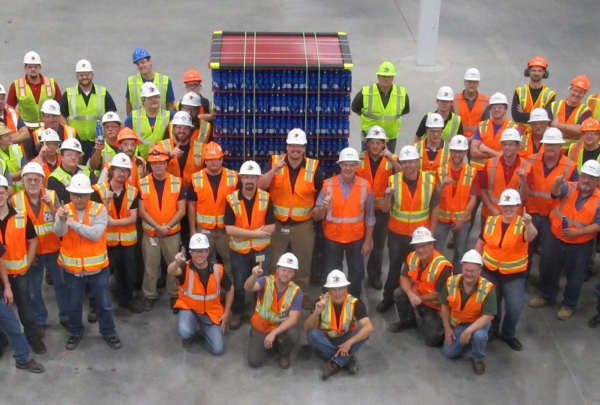Over the past year, the Architectural, Engineering and Construction (AEC) industry has been rocked by price surges in a variety of commodities. Steel prices, in particular, have skyrocketed. So, how does Haskell navigate an inflated commodities market with volatile prices?
“With honesty and trust,” said Paul Tyler, Haskell’s Senior Vice President of Planning.
“High, unstable commodities prices and substantial shipping backlogs mean that Haskell needs to be honest and transparent with clients concerning price points and delivery dates,” Tyler said. “Setting realistic expectations is key: Don’t tell a client the company can find steel at below-market prices, or the company can complete the project early despite ongoing supply chain delays. Every AEC firm is dealing with higher prices, but Haskell sets itself apart by predicating its relationships with clients on trust and transparency.”
The worldwide steel shortage is quite a compelling issue, and there are more factors at play than meet the eye. With the onset of the COVID-19 pandemic, many steel manufacturers assumed demand would drop, so numerous producers shut down older mills to cut operating costs. However, steel demand remained high throughout the pandemic, as residential and industrial renovation and construction boomed. The resulting shortage caused prices to soar.
Despite high demand, manufacturers have chosen not to reopen most of the older mills closed during the pandemic because of the high cost of reopening and operating them. Industry-wide goals for cutting carbon emissions also incentivized steel companies to keep their high-emitting older mills shuttered. Thus, steel mill capacity remains below pre-pandemic levels at approximately 75% of the previous high.
Supply chain clogs are another contributor.
“Shipping backlogs are one of the main culprits of high steel prices,” Tyler said. “Due to the gradual pace of reopening, supply chains around the world remain backed up, causing significant shipping delays. High oil prices have only worsened the issue because pretty much everything required for a project is either powered by gas or needs gas to get to the site. Higher oil prices translate to higher gas and diesel prices, which increase costs for raw materials.
“Labor shortages are also adding fuel to the fire, as many of these raw material manufacturers can’t find enough workers to feed demand. Same thing goes for shipping. A shortage of truckers means more shipping delays.”
Many players in the AEC industry have debated whether repealing Trump-era tariffs on commodities, such as lumber and metals, would help lower prices. It is unlikely, however, that tariff rollbacks would affect price points, mainly because shipping costs remain exorbitant.
“When the tariffs were enacted a few years ago, prices didn’t change, so there’s little reason to believe prices would change now if they’re repealed,” Tyler said.
“Steel prices are unlikely to return to pre-pandemic levels. A steady decline can be expected, but high prices will be the norm well into 2022. In fact, steel prices have not truly been stable since 2005. By 2005, China had become a major player in the world economy, and it embarked on new construction and infrastructure projects that rivaled the U.S. in scope. Previously, the United States set the market price for most construction commodities because it was by far the largest consumer. Now, however, there’s more demand for raw construction materials elsewhere in the world, and therefore prices have gone up.”
Steel shortages actually have given Haskell more bargaining power during contract negotiations with steel manufacturers.
“Exorbitant steel prices have forced us to look at alternative structural framing alternatives, such as precast concrete.” he said. “Consequently, if steel suppliers give outrageous asking prices, it becomes feasible to negotiate prices down since the traditionally more expensive alternatives are now cheaper steel substitutes.”
Guaranteed maximum price (GMP) contracts, a mainstay of Haskell’s business, have become trickier to negotiate with volatile commodities prices. Typically, in such an engagement, Haskell and the client negotiate the GMP, and Haskell is responsible for cost overruns to the GMP. Volatile commodity prices, however, have required adaptation.
“Haskell now inserts cost escalation clauses into its GMP contracts,” he said. “Under the clause, commodities prices will be renegotiated if the price rises or falls above or below a set threshold, usually somewhere between 2 and 5%. It isn’t ideal to insert cost escalation clauses into contracts, but in this volatile market, it’s a necessity.”
“At the end of the day, Haskell remains focused on selling its brand, its people, and its capabilities. Private companies are concerned with price, however they are even more concerned with their ability to meet performance and schedule expectations. Some of our larger clients would pay significantly more for a project if it meant we could finish the project a couple months earlier. All AEC firms have to deal with these unstable commodities prices, but what propels Haskell to the front of the pack is the company’s ability to meet expectations.”




